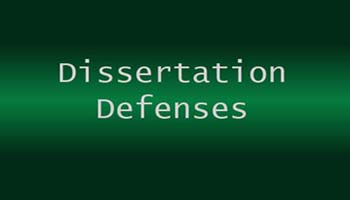
"Improving Performance of Solid State Drives in Enterprise Environment"
Jian Hu
Tuesday, July 31, 2012; 4:00pm
347 Avery Hall
Abstract:
Flash memory, in the form of Solid State Drive (SSD for short), is being increasingly employed in mobile, personal and enterprise-level storage systems due to its superior features such as good energy efficiency, high random read performance, shock resilience and small form factor. However, SSD suffers from the erase-before-write and endurance problems, which limit the direct deployment of SSD in enterprise environment. Existing studies either develop SSD-friendly on-board buffer management algorithms, or design sophisticated Flash Translation Layers (FTL) to ease the erase-before-write problem. This dissertation consists of two parts.
The first part focuses on the white-box approaches. We design a write buffer management algorithm on top of the log-block FTL, which not only optimizes the write buffer effect by exploiting both the recency and frequency of blocks in the write buffer, but also minimizes the destaging overhead by maximizing the number of valid pages of the destaged block. We further identify that the low Garbage Collection (GC) efficiency problem has a significantly negative impact to the performance of the page-mapped SSD. For workloads with few updating requests, the GC efficiency is always low. We design a GC-Aware RAM management algorithm that improves the GC efficiency even if the workloads do not have updating requests by dynamically evaluating the benefits of different destaging policies. Moreover, this GC-Aware RAM management algorithm minimizes the address translation overhead by exploiting the interplay between the buffer component and the FTL component.
The second part focuses on the black-box approaches. As an increasing number of applications deploy SSD in enterprise environment, understanding the performance characteristics of SSD in enterprise environment is important. We identify several performance anomalies of SSDs and their impact in enterprise environment by evaluating several commercial SSDs. Our study provides useful suggestions to both system developers and SSD vendors. Further, based on the performance anomalies identified, we simulate an IO scheduler that takes advantage of the SSD features and evaluate the performance under commercial SSD products. The performance is improved in terms of bandwidth and average response time.
"A Cost-Effective Three Dimensional Relative Localization System for Micro Aerial Vehicles using Infrared Light"
Benjamin Christensen
Thursday, August 2 at 9 a.m.
347 Avery Hall
Micro Aerial Vehicles (MAVs) are of interest in the research and industrial communities for their ability to reach inconvenient or hazardous locations. In many cases, it is desirable to use a flock of MAVs to accomplish a mission more quickly, or to carry out tasks that a single MAV cannot do alone. To accomplish these tasks, the vehicles in the flock must have reliable positioning information about one another. This information can be used to coordinate activities between MAVs or to simply avoid collision. When operating in places without clear view of the GPS constellation, especially indoors, GPS positioning is not an option for localization.
This thesis presents a novel 3D localization platform and algorithm designed for use on indoor MAVs. The localization system uses infrared light as a means of ranging. Two small and light sensing boards are used to provide coverage of the top and bottom hemispheres of the MAV. This design is compact and requires 73% fewer Infrared hardware components than state of the art 3D infrared localization systems. The maximum range of the system is 8m. Extensive empirical validation of this platform has been conducted, including an application of the 3D positioning system on an MAV.